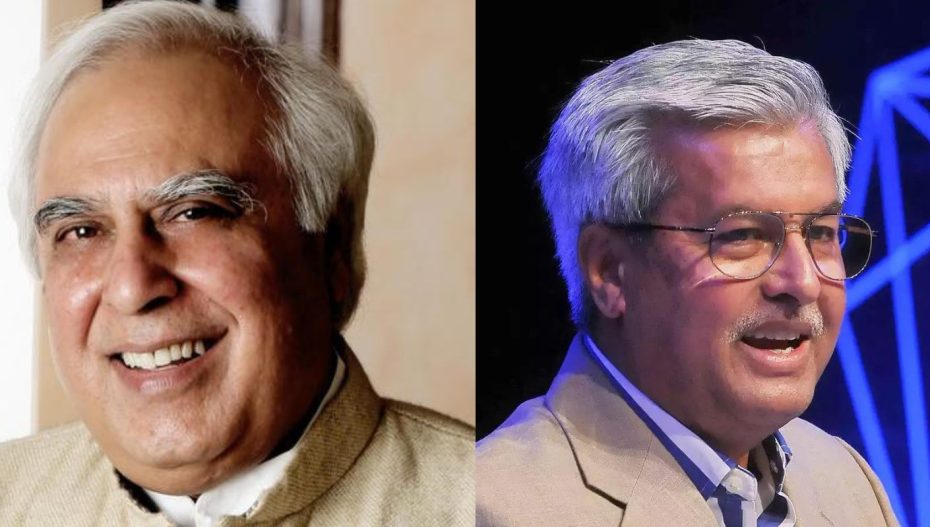Two of India’s most senior and most highly regarded lawyers have sharply differed over whether the Citizenship Amendment Act of 2019 (CAA) violates the constitution and also over whether the rules notified on Monday (March 11) should be stayed till the 200 plus challenges to the Act, which have been admitted by the Supreme Court, are heard and decided.
Their divergence of opinion is marked and very clear and obvious. It illustrates two completely different attitudes and responses to both the 2019 Act and the rules which were notified on Monday.
When asked if in their personal opinion the CAA violates critical articles of the constitution, Kapil Sibal, a former law minister, said: “Absolutely, without any doubt”, adding this is because the Act bases citizenship on religion.
In contrast, Dushyant Dave said: “The answer is extremely difficult to give” quickly, adding that “it doesn’t appear to be unconstitutional to me”. He further added, “it would be very difficult to say it is really unconstitutional on the face of it”.
In two separate interviews, presented together as a single package, both lawyers were asked almost identical questions. They were asked specifically whether the CAA violates Article 14, which reads: “The state shall not deny to any person equality before the law or the equal protection of the laws within the territory of India.”
Sibal said it did. “Most certainly”, he said.
Dave said he didn’t believe that was the case because as yet the Supreme Court has not extended Article 14 to cover illegal immigrants. He said Article 21 covers everyone in the country, whether citizen or not. That is not the case with Article 14, he said.
Both lawyers were also asked whether the CAA breaches the preambular commitment to secularism. Sibal said it does and argued that the present government has no commitment to secularism whatsoever. Dave said “it doesn’t”. He said, in his answer that the CAA may be illegal or morally questionable but not unconstitutional.
Asked about the over 200 challenges against the Act, which the Supreme Court has so far not responded to though almost five years have passed, Sibal said the Supreme Court should either stay the CAA rules, which were notified on Monday, or order no action is taken under them until it hears the challenges.
On this specific point, Dave repeatedly refused to comment and said it was for the Supreme Court to decide what it wishes to do.
However, both lawyers believe that although the rules have been notified and in due course citizenship will start being conferred under the Act, the challenges have not become infructuous and the court can still, if it wants, strike down the Act whenever it hears the challenges. In other words, it can turn the clock back.
The difference is Sibal believes it should whilst Dave does not believe the Act is unconstitutional.
I have only given you the big, broad points. I have deliberately done so in apposition to and contrast with each other. There’s an awful lot more in the interviews which I will leave you to find out for yourself when you watch them.
What I will give you instead is a list of the questions. As I said, virtually the same questions were put to both lawyers.
Here are the questions:
1. In your personal opinion, does the Citizenship Amendment Act, the rules of which were notified on Monday, violate critical articles of the constitution?
2. Article 14 of the constitution says, “The state shall not deny to any person equality before the law or the equal protection of the laws within the territory of India.” By excluding Muslims, does the Citizenship Amendment Act breach Article 14?
3. The preamble of the constitution declares India “a sovereign socialist secular democratic republic”. Does the Citizenship Amendment Act breach the commitment to secularism?
4. The Act is designed to give citizenship to people who are discriminated on grounds of their religion in three countries – Pakistan, Bangladesh and Afghanistan.
Can the choice of those three countries be questioned on constitutional grounds? As a result, the Act ignores the Rohingyas from Myanmar and the Tamils from Sri Lanka, both of whom are discriminated against and both countries are neighbours.
5. Even if you just focus on these three countries, the Act ignores Ahmadiyyas from Pakistan and Hazaras, who are Shias, from Afghanistan. They arguably face as much discrimination as Hindus and Christians in Pakistan or Hindus and Sikhs in Afghanistan.
6. Now, challenges against this Act have been lying with the Supreme Court since 2019. The Hindustan Times (March 13) says there are over 200 such but they haven’t been taken up by the court. What message does that send out?
7. Now that the rules of the Act have been notified and, presumably, citizenship will soon be conferred under its terms, have those petitions in the Supreme Court become infructuous?
8. In the case of Article 370, when questions were asked about the Supreme Court delaying hearing the challenge, the court famously said we can turn the clock back if need be. Can the clock be turned back in this case?
Also Read: At Least Three Companies Deemed as ‘High-Risk’ by Finance Ministry in 2018 Bought Electoral Bonds











